Your Go-To Extraction Aftercare Timeline
Tooth
extractions are a common solution for treating issues such as tooth decay, gum
disease, or overcrowding in the mouth. Knowing how to take care of your mouth
after an extraction is crucial to ensure proper healing.
Below
is a guide on what to do during your 7-10-day recovery process.
Throughout the healing process:
Take pain relievers: The first thing you can do to ensure comfort throughout the healing
process is taking pain relievers as prescribed. This will take the edge off of
the pain and make for a more comfortable recovery.
Use an icepack: If
you wrap an icepack and apply it to the outside of your mouth near the
extraction site, it can help reduce inflammation. Make sure to only use icepacks
for 10-15 minutes at a time, as overexposure to the cold can lead to tissue
damage.
Elevate your head while sleeping: Sleeping is one of the best times for your body
to heal. To assist in this, elevate your head at a 46 degree when sleeping for
the first 3-4 nights after the procedure. In addition, it can also help reduce
swelling. Just be sure to remove any gauze before you go to bed.
Rest often: It
may seem like common sense but be sure to relax and take it easy after an
extraction just as you would with any other surgery. It can be a good idea to
take a few days off work or avoid strenuous tasks if possible.
Eat soft foods: Until
your mouth is fully healed, switch to eating softer foods such as yogurt,
mashed potatoes, pasta, or eggs. Hard foods such as popcorn, nuts, and chips
can affect your mouth and complicate the natural healing process after your
extraction.
Days 1 – 2:
Change your gauze as needed: After your procedure, you will need to keep
gauze in your mouth to clean the surgical site. Be sure to take it out and
replace it with fresh gauze if you need to eat or drink and do not go to sleep
with gauze. Bleeding should stop within 3-4 hours, after which it can be
removed.
Avoid rinsing or drinking with straws: Rinsing your mouth vigorously and drinking with
straws should be avoided while healing. This is because they can create suction
in the mouth which can loosen the clot and slow down your healing process.
Avoid blowing your nose or sneezing: If your surgeon removed a tooth from the upper
half of your mouth, blowing your nose or sneezing should be avoided if possible
as it
Days
3 – 10:
Rinse
with warm saltwater: Starting on day 3, you can gently
rinse the affected area with a warm saltwater solution. To do this, simply mix
½ a teaspoon of salt with 8 ounces of warm water and apply it to the extraction
site to clean it.
Brush
and floss (avoid the extraction site): By this time, you
can begin brushing and flossing as normal, taking care to avoid the area around
your extraction. It is important to maintain good oral health after your
surgery to reduce the risk of infection and keep your mouth clean.
We hope this guide was helpful and wish you a quick and comfortable recovery.
